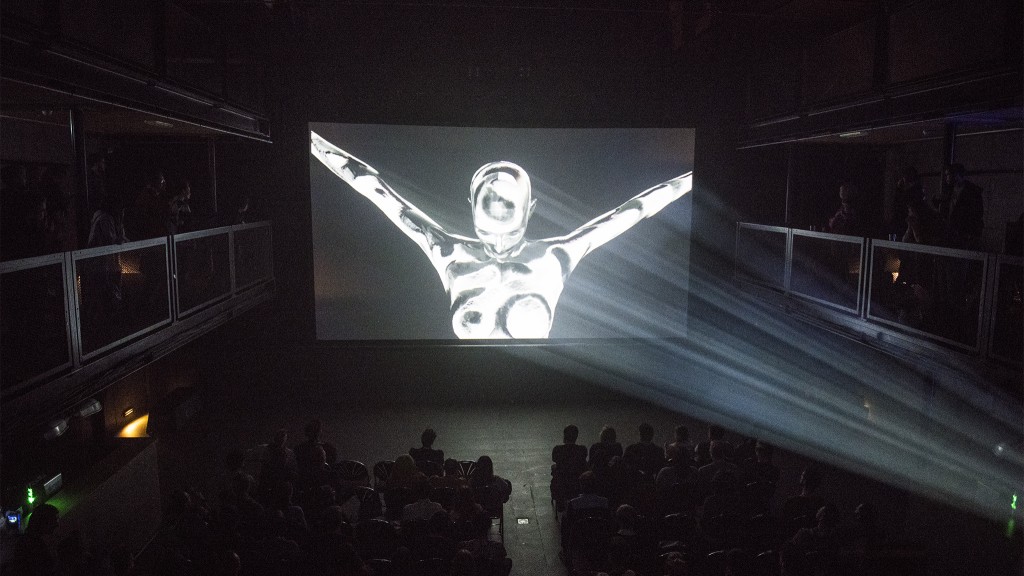Rewire 2019: Instrumental Shifts
For the past four years, the Netherlands Institute for Sound & Vision’s RE:VIVE initiative has partnered with The Hague’s Rewire Festival to explore new presentations of re-used cultural heritage in the electronic music community. This year for Rewire 2019, RE:VIVE and Rewire collaborated on the festival’s first academic symposium entitled Instrumental Shifts.
For the past four years, the Netherlands Institute for Sound & Vision’s RE:VIVE initiative has partnered with The Hague’s Rewire Festival to explore new presentations of re-used cultural heritage in the electronic music community. This year for Rewire 2019, RE:VIVE and Rewire collaborated on the festival’s first academic symposium entitled Instrumental Shifts.

Photo by Parcifal Werkman
The symposium brought together leading researchers, academics and artists to lift the hood on the dynamic facets of artificial intelligence and how they contribute to evolving creative processes. For Sound & Vision and RE:VIVE the act of bringing together the academic and cultural world with creative communities is an ever growing role that the institute is taking on. With years of experience forging new partnerships around the world that synergize the creative economy and knowledge institute, Sound & Vision has become a leading institute in this regarding. RE:VIVE specifically has worked exclusively on forging new partnerships with the electronic music community, a community that is vibrant and cutting edge both with regards to the integration of new and future technologies across all content domains.
AI Research
Rewire Festival is The Netherlands’ most progressive and innovative festival for cutting edge music. The programming remains exceptionally challenging and forward thinking, making it the perfect venue to invite academic R&D professionals to discuss how their work intersects with the artistic world.
The focus of the symposium was on AI research in music and how this research is or can be used by electronic musicians. The goal was to show the value in partnerships between the academic and creative world and how both parties can benefit greatly through collaboration. The speakers came from around Europe including the UK, Ireland, Sweden Belgium and The Netherlands.

Dr. Thor Magnusson from the University of Sussex. Photo by Pieter Kiers.
Sonic Writing
Kicking off the day was Dr. Thor Magnusson from the University of Sussex. His new book, Sonic Writing explores how contemporary music technologies trace their ancestry to previous forms of instruments and media. His research and finding, endebetted to centuries of technological practices set the scene for how the day would proceed and gave new perspectives for how we as the audience, makers, researchers and artists should look at technology with relation to the things we’re creating.

Professor Mick Grierson from University of the Arts London. Photo by Pieter Kiers.
Creative Computing
The symposium keynote speaker, Professor Mick Grierson from University of the Arts London delivered a hugely inspiring talk that both put the potential of AI into realistic terms (we’re nowhere near true AI) and highlighted just a few of the projects he’s been a part of over the past 15 years. Grierson has been instrumental in the world of creative computing in the U.K., having set up the Creative Computing Lab at Goldsmiths and is now research lead at the UAL’s Creative Computing Institute. Perhaps the biggest take-away from Grierson’s talk however was that since these R&D labs’ outputs actively engage the artistic world and put product development as high as experimentation, their outputs are more widely used and therefore better sustained.
Dr. Roisin Loughran from University College Dublin as well hammered home the fact that AI is not at the level that it’s being presented within non-scientific circles. Dr. Bob Sturm, whose Folk RNN project received international praise for its accuracy with regards to generative Irish folk music even still presented that it’s still nowhere near perfect or autonomous
The final panel
So then what is the value of artists utilizing AI assisted composition and what are researchers hoping to uncover by propagating and furthering these technologies? The final panel, featuring Mick Grierson, Roisin Loughran, Maaike Harbers and artist Ash Koosha moderated by Dick Rijken, Director of STEIM really explored these questions. In the end, it became clear that AI will simply be a tool for us to discover new sounds but it will be the humans that put these sounds together in meaningful ways. Just like any new spice or ingredient it will take time for them to become easily integratable and for their quality of be high enough and consistent enough.
The intention of the Symposium was to bring together these worlds and illustrate the added value each can provide for one another. As the final panel closed out the day it became apparent that this matchmaking certainly makes sense and Sound & Vision looks forward to facilitating more crossovers in the future.